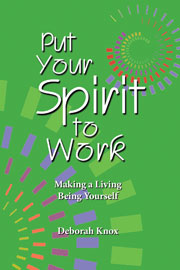It’s Not Your Parent Retirement and It never will be!
So of course, it’s going to be up to you to create your post work identity. What’s that you ask?
One of the biggest challenges facing those who step out of the traditional workplace is that of finding out “who am I now?” For the most part your previous role was dependent on your employer’s expectations, and your community was made up of colleagues, vendors or customers.
Since your work identity is tied in closely with what you do, what happens when the work goes away? Most people I talk with look forward to one of the following options:
- Cleaning out the closets, drawers, garage, etc.
- Completing a year’s worth of “honey-do” projects
- Taking a year off to figure out “what’s next?”
Let’s talk about that first year’s post work identity and what to expect. After a short period of time dealing with the stages of transition you are complete with where you were and ready to begin anew. You start off feeling good about all you are getting accomplished; getting caught up on sleep and maybe starting an exercise routine. The critical factor – the main difference between having a pre- and post work identity is TIME. Time has a way of spreading out – especially when you’re “not working.”
When you’re working for someone else there’s barely enough time to do it all. We pace ourselves so we get it done in a meaningful amount of time. When you leave the workplace, time becomes so much more ambiguous. It’s important to make the most of the time left and since we know on average we’re living 20 – 30 years longer, learning to value time is pretty high up on my list.
I need time to generate more income but also to figure out what actually makes me the most happy. This factor alone, makes this so unlike your “parent’s retirement.” I also use my time to enrich the relationships I have and take good care of this aging body. Take the time to focus on your skills and talents; and identify new venues and settings where you can engage others by doing what you love.
The benefits of being invested in what you want to do and finding new venues are cumulative – one good thing leading to another.
- Your confidence increases as you focus to clarify options
- Connecting with others is easier because of knowing what to do
- Your use of time becomes the asset you easily manage because of your focus and clarity.
Discover the gift of joy in knowing what you do well and enjoy doing. The more you know yourself and let yourself be, you will find yourself doing what you have to do, being who you are in the moment, and not living your parent’s retirement.


